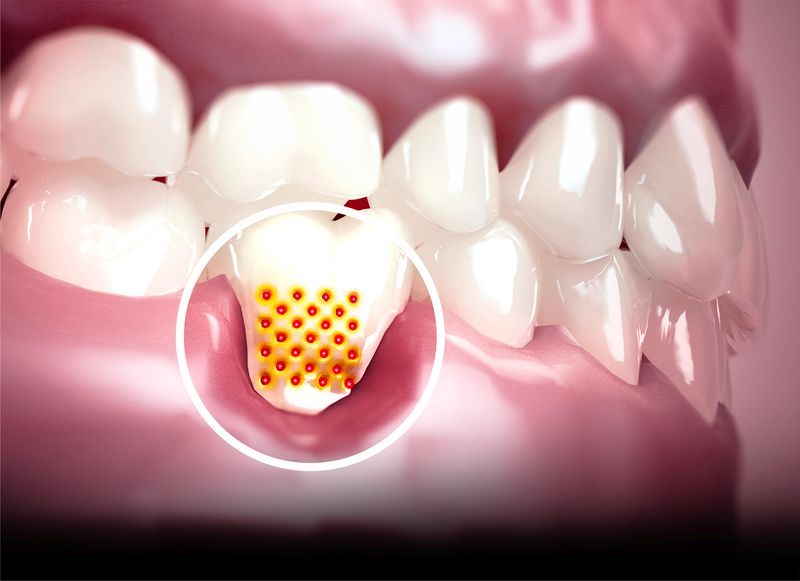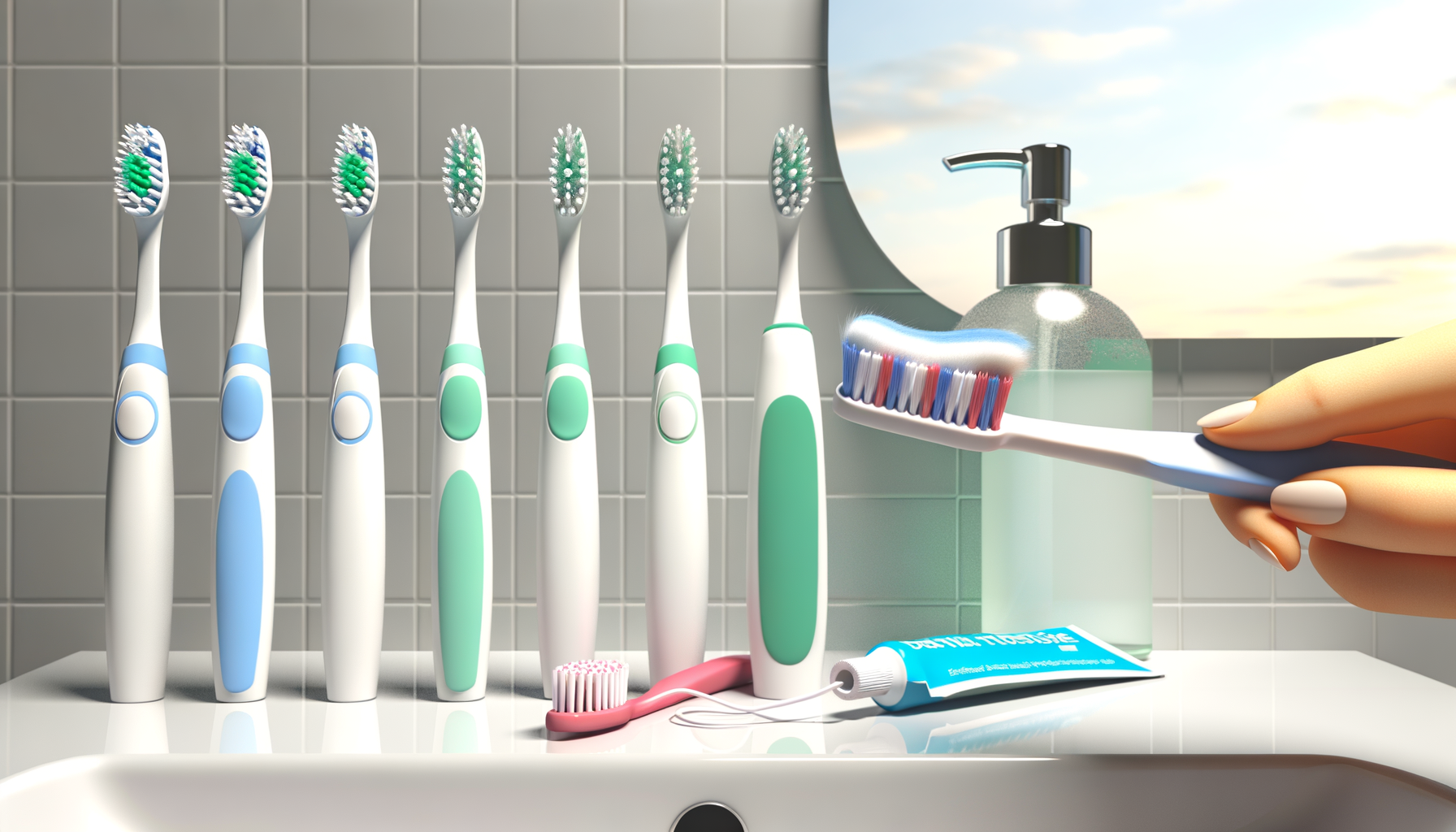Mastering Flossing: Tips, Techniques, and Misconceptions
Feb 08, 2024
Maintaining optimal oral health goes beyond regular brushing. It's crucial to reach those hard-to-reach areas to prevent plaque buildup. The key to comprehensive dental hygiene lies in a simple routine that is often overlooked or performed incorrectly. By following a few easy tips, employing smart strategies, and dispelling common misconceptions about interdental cleaning, you can keep your gums healthy and your smile radiant.
Understanding the Importance of Flossing
Keeping up with oral hygiene is vital for maintaining overall health, and flossing plays a critical role in this daily routine. In Evanston and the North Shore area, the prevalence of gum disease is a concern, with reports indicating a higher incidence than in many other regions. Flossing regularly can significantly lower the risk of developing such conditions by effectively removing plaque and debris that brushing alone cannot reach.
Consistent flossing contributes to strong teeth and healthy gums, essentially preventing the accumulation of plaque, which can lead to tartar build-up and gum disease. Addressing local dental health concerns, it's been observed that adequate flossing can make a marked difference in preventing dental issues that frequently arise in the community. A comprehensive
study on dental health emphasizes the importance of flossing in conjunction with regular brushing for maintaining optimal oral hygiene.
Types of Flossing Products: Finding the Right Fit
Choosing the right flossing tool can be pivotal in adhering to a proper oral care regimen. The market offers a plethora of flossing aids designed to suit various preferences and needs. Traditional string floss is the most widely used due to its efficiency in removing plaque between teeth and along the gum line. Some individuals may find water flossers more comfortable, which use a stream of pulsating water to clean between teeth and below the gumline. Interdental brushes are another alternative, particularly efficient for those with wider gaps between their teeth.
For those with braces or sensitive gums, specially designed flossers and softer dental threads are available to facilitate cleaning around orthodontic wires and minimize irritation to delicate tissue. Products like floss threaders or orthodontic floss can be particularly helpful for navigating the complexities of braces, while gentle dental tapes can be a boon for those with gum sensitivity. It's important to explore the various options to find the perfect match that will not only be effective but also encourage consistent use.
The Proper Flossing Technique: Step by Step
Understanding the correct flossing technique is essential to reaping the benefits of this oral hygiene practice. The process involves gently guiding the floss between the teeth, following the curves of each tooth, and ensuring contact with the gum line. Vigorous motions or incorrect flossing can damage the gums or tooth enamel, so it’s crucial to floss with care.
Plaque removal is a key element of flossing, and proper technique significantly enhances this process. Tips for effective flossing include using a fresh segment of floss for each tooth to prevent the transfer of bacteria and being thorough yet gentle to avoid injuring the gums. Local dental health professionals emphasize reaching the back teeth as they are often neglected, which is crucial for a comprehensive clean. Careful attention to all these aspects helps ensure optimal dental health for residents in the North Shore region.
Common Flossing Mistakes to Avoid
Flossing may seem straightforward, but simple errors can reduce its effectiveness and even cause harm. Common mistakes include snapping the floss into the gums, which can cause irritation or damage, and not flossing long enough to thoroughly remove plaque. Some people floss too roughly, leading to soreness and bleeding gums, or they reuse floss, which can transfer bacteria from one tooth to another.
To prevent these issues, use a gentle sawing motion to insert the floss, and curve it around each tooth in a 'C' shape to remove plaque without harming the gums. Choose a piece of floss long enough to use a clean section on each tooth and discard after use. Remember that flossing is a gentle maneuver and should not cause pain or significant discomfort.
Flossing for Special Dental Needs
For patients with crowns, bridges, or implants, flossing is essential but requires modified techniques. Special dental floss with a stiff end or floss threaders can navigate around these dental appliances. The goal is to clean around the margins of crowns and bridges and underneath them without dislodging any part of the restoration.
Individuals with periodontal disease face unique challenges when it comes to flossing. Gum pockets may be deeper, demanding extra care to avoid aggravating sensitive tissues. Soft flosses and interdental brushes are helpful accessories for gently cleaning these areas. Consulting with your dentist for personalized advice is paramount for effective and safe flossing in these cases.
Integrating Flossing into Your Daily Routine
Making flossing a habitual part of daily oral care can have long standing benefits. The key is consistency; flossing at the same time each day, such as before bedtime, can help establish the habit. Whether you floss before or after brushing can be a personal choice, although many dental professionals suggest flossing first to dislodge food and plaque, followed by brushing to clean these away.
For the residents of the North Shore, incorporating flossing into your routine can contribute to not only individual well-being but also to community health. A consistent approach to dental care within the community can help maintain the high standard of oral health that the area is known for.
Debunking Myths Around Flossing
Misconceptions about flossing are common, such as the belief that bleeding gums while flossing is a sign to stop. In reality, bleeding can indicate the presence of gum inflammation, and with consistent, gentle flossing, gums should become healthier. Authoritative dental sources clarify that while some discomfort is normal when starting a flossing regimen, any pain or significant bleeding should prompt a visit to the dentist.
Nurturing a Community of Healthy Smiles
Dental health is a collective responsibility, and in the North Shore area, promoting oral hygiene is a shared value. Local initiatives, like community dental health fairs and school-based educational programs, aim to increase awareness and encourage habits like flossing that contribute to long-term health benefits. By supporting each other in maintaining oral care routines, residents can help ensure that the North Shore continues to be recognized for its strong commitment to dental wellness.
For expert guidance on flossing and comprehensive dental care in the Evanston and North Shore area, turn to Stephens Dentistry.
Contact us today to learn more about our preventative dental services.




Join Our Elite Dental Family

©2022 Stephens Dentistry. All Rights Reserved.

